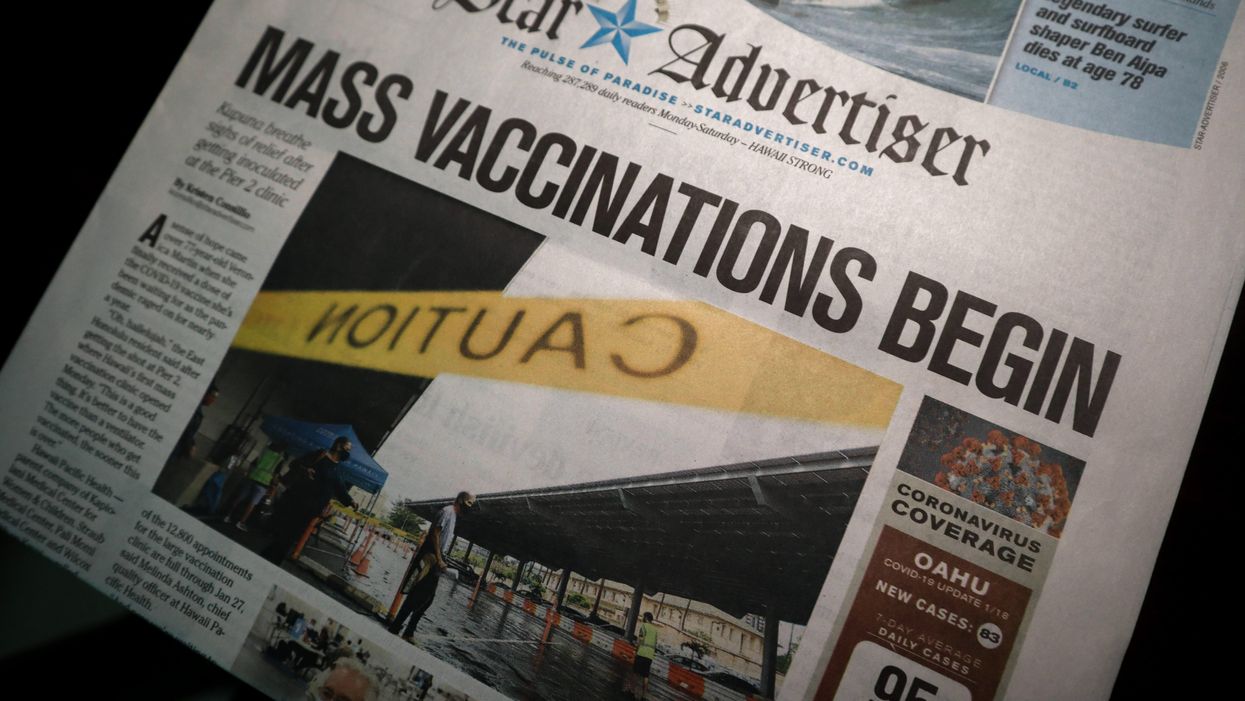Vaccine Passports: A Culture War We Should Cancel Immediately
"We are not supporting doing any vaccine passports in the state of Florida," declared Gov. Ron DeSantis. "It's completely unacceptable," he said, for either government or the private sector to require showing proof of vaccination against COVID-19 "to just simply participate in normal society."
Actually, Florida requires proof of vaccination for any child attending school — and the list of mandatory immunizations, available on the state website, is not short. (The Florida Certification of Immunization, DH Form 680, documents a child's vaccination history.)
But why pass up an opportunity to play culture war when you might run for president as the Republican candidate in 2024? After all, President Biden's administration is working with businesses to come up with a standard vaccine certification document, which makes it extra easy to mischaracterize what this is all about, especially on the fevered right. I will spare you the comparisons to Nazi Germany already being aired on Fox News.
The idea of a document certifying that holders have been vaccinated against the coronavirus originated in the private sector. Airlines, restaurants and other businesses hurt by the loss of virus-fearing customers see the document as a way of reassuring the public that the person in the next seat very likely won't pass on a dreaded illness.
The European Union plans a Green Digital Certificate that would let those who've been vaccinated or recently tested negative for the virus travel anywhere in the region. Israel has created the Green Pass, which can be carried on a smartphone, confirming that someone has been fully vaccinated. It's required for indoor dining, going to a gym or attending the theater.
As for here, the Biden administration says there will be no federal database showing who has gotten the shots. And no one will be forced to get vaccinated. The police state has not arrived.
But let's address some of the frequently voiced objections to some kind of vaccine certification.
— Suppose you left yours at home: Well, suppose you get pulled over for speeding and you've left your driver's license at home. Suppose you try to enter any country — or fly back to this one from abroad — without a passport. It's best that you remember to carry these documents.
— Businesses should not be able to force employees to show proof of vaccination: Why not if they can already insist that employees wear face masks and dress appropriately for the job?
— What about variants that a vaccine might not stop?: In other words, suppose you're one of the tiny percentage of people who get the virus despite being immunized. I know I'd rather take a very small chance of getting the virus than the far bigger chance it would be if the unvaccinated were allowed to crowd me at a bar.
— Disadvantaged communities would be most adversely affected by a mandate: Disadvantaged communities are most adversely affected by the virus. The remedy is to ensure good access to the vaccines everywhere.
The beautiful day may come when America has achieved herd immunity to COVID and the need for this kind of documentation is lessened. Bear in mind, though, that travelers to parts of Africa still must show a card indicating they've been vaccinated against yellow fever. Meanwhile, Italy, India, and other countries are still dealing with high rates of infection.
Finally, the question arises of whether a bar, stadium, or convention center should have the right to deny service to the unvaccinated. Of course they should. If restaurants can post a sign reading, "No shirt. No Shoes. No Service," there's no reason why they can't say, "No Shots. No Service."
Just like the public schools in Florida — and most everywhere else.
Follow Froma Harrop on Twitter @FromaHarrop. She can be reached at fharrop@gmail.com. To find out more about Froma Harrop and read features by other Creators writers and cartoonists, visit the Creators webpage at www.creators.com










